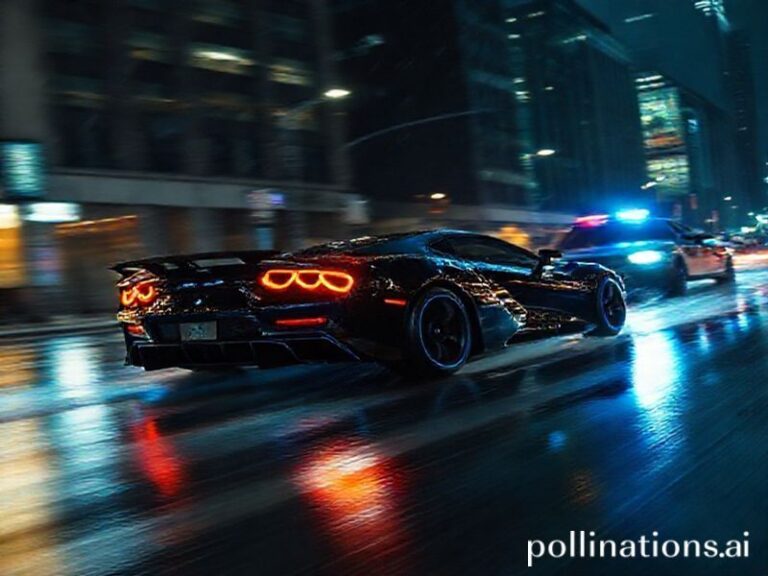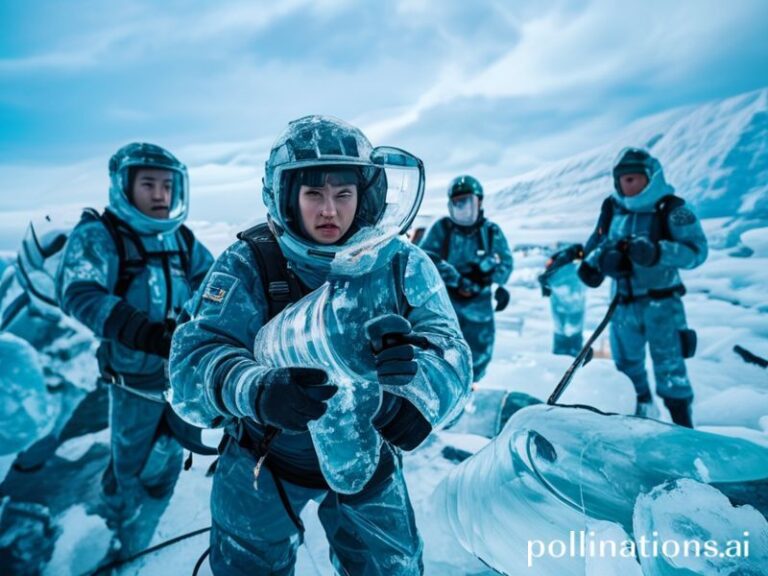enrique hernandez
Enrique Hernández, the man whose name autocorrects to “Enrique Iglesias” on three continents, has spent the past decade proving that the global supply chain is held together less by steel and silicon than by a single procurement manager in Tijuana with a caffeine addiction and a knack for dark miracles. From his perch at a nondescript maquiladora that supplies microchips to everyone from Tokyo subway engineers to Norwegian wind-farm technicians, Hernández has quietly become the duct tape keeping late capitalism from sliding into a ditch. When a typhoon shutters a Malaysian wafer plant, a WhatsApp voice note from Hernández reroutes 2.3 million chips through a warehouse in Rotterdam that technically doesn’t exist on any customs ledger. Crisis averted, quarterly earnings saved, another boardroom somewhere breaks out the champagne they’ll later expense as “team-building.”
The international significance of this is both comically large and comically fragile. Supply chains used to be boring, the sort of topic that made MBA students contemplate dropping out to become baristas. Now they are front-page news everywhere from Frankfurt to Lagos, mostly because the world discovered that “just-in-time” actually means “just-enrique.” When the Ever Given parked itself sideways in the Suez Canal like a drunk tourist blocking a hotel hallway, analysts scrambled to calculate lost GDP while Hernández was already chartering a fleet of vintage Antonov cargo planes to airlift critical components across three continents. The bill was eye-watering, the carbon footprint criminal, but the alternative was every German auto plant simultaneously discovering what a vacation feels like. Capitalism, it turns out, runs on panic and one Mexican logistics savant who never sleeps.
Observers in Geneva like to frame Hernández as a triumph of globalization, proof that borders are just dotted lines on a map. More cynical voices—this correspondent included—note that borders are still very lucrative dotted lines, especially when you can arbitrage them in 30-minute increments. Hernández’s genius lies not in erasing geography but in monetizing its dysfunction: a strike in Busan becomes an opportunity for his cousin’s trucking cooperative in Guadalajara; a volcanic eruption in Iceland reroutes air freight through Reykjavík’s Keflavík airport, landing fees mysteriously waived after a midnight phone call. The UN calls this “resilience.” The rest of us call it the most expensive game of whack-a-mole ever staged, with the planet as the board and quarterly earnings as the prize.
Naturally, the man himself remains elusive. Interview requests are deflected by an assistant who speaks six languages and signs emails with the ominous phrase “availability is a construct.” The one time Hernández appeared on camera—an accidental cameo in a Korean documentary about avocados—he spent twelve seconds explaining that logistics is just “organized paranoia” before ducking back behind a shipping container labeled “live tropical fish.” The clip went viral among supply-chain TikTok, a corner of the internet previously reserved for people who get genuinely excited about pallet dimensions. Overnight, Hernández became the unlikely face of late-capitalist anxiety chic, his baseball cap now selling for $400 on resale apps marketed to Gen-Z consultants who think Excel is a personality.
What does it all mean? In a world where microchips are the new oil and geopolitics is a contest of who can hoard the most rare-earth minerals, Hernández is the black-market cardiologist keeping the patient alive just long enough for the next crisis. His success is simultaneously reassuring—look, someone’s still steering this thing—and terrifying, because the steering wheel is attached to a man who once rerouted an entire semiconductor shipment through an Albanian casino to avoid a 3% tariff. If that sounds like the plot of a Netflix series, congratulations: the streaming rights were sold last week for seven figures, with Hernández serving as executive producer on the condition that all dramatic tension be resolved within 48 minutes and a post-credit scene tease the next logistical catastrophe. Roll credits, queue the global sigh of relief, and try not to think too hard about what happens when he finally takes a vacation.







